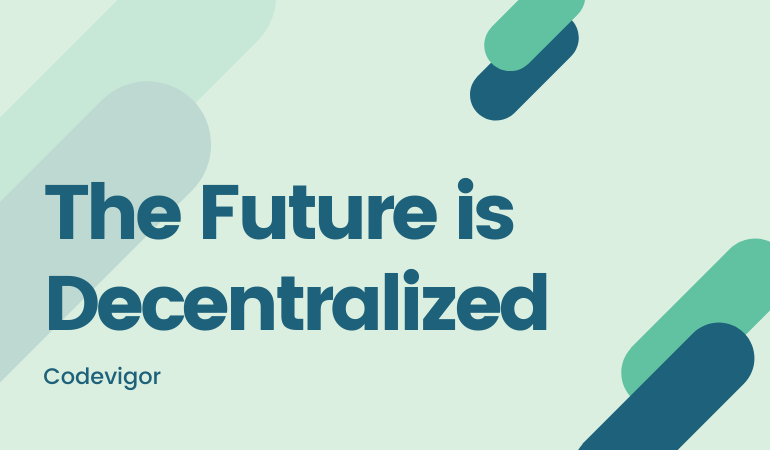

Feb 19, 2021
Post civilization, mankind has adapted to an exclusively autocratic way of life which is characterized by the subtle dictatorship of powerful authorities such as governments and banks. As the current status quo mandates various populations to abide by preset regulations, people are limited in their choices and consequences. The current autocratic structure has adversely affected us by widening the gap between rich and poor while at the same time, eliminating the middle class. The consequence is especially severe for less economically developed countries, which experience a greater degree of illiberal leadership.
Decentralization
In 2009, a possible solution was first discovered, one that could radically change the society. A now trending concept known as cryptocurrency was first propounded by 'Satoshi Nakamoto’, and soon became a globally accepted phenomenon. Cryptocurrency is simply defined as "digital cash" and is characterized by decentralization, denoting that the market regulates the price of Bitcoin and ultimately determines whether the price of Bitcoin appreciates or depreciates. In essence, the governments and banks possess no authority in its management. Fundamentally, Bitcoin aims to give people more authority over financial transactions and avoid exorbitant bank charges. This phenomenon aims to do one thing in particular: provide a choice to the current monopoly is currency and monetary policy.
Adoption
Bitcoin has been further popularized by many famous entrepreneurs including Elon Musk, and Mark Zuckerberg. They have publicly declared that Bitcoin will positively impact society in the future and big companies like Tesla have started accepting Bitcoin as a payment method. However, certain well-known figures like Warren Buffet and Bill Gates are among many who have expressed a different opinion in that cryptocurrency will pose more of a societal disruption in the future. In retrospect, while Bitcoin has established itself as a source of affluence in today's market, it has posed some considerable concerns to regulators. There is a perception that Bitcoin and other cryptocurrencies have motivated a great extent of money laundering worldwide, as the digital platform provides the freedom and confidentiality that banks do not offer. However, currently, money laundering happens largely using the existing systems which rely on fiat and the current monetary systems which have been put in place by governments and central banks.
Restrictions and Rejections
The enthusiasm over Bitcoin is not shared by everyone as some nations are strongly opposed to this spectacle. China has made multiple ineffective attempts at prohibiting the corporate level trading of cryptocurrency due to the government's inability to regulate it. Bolivia, India, and Denmark have also illustrated reluctance in accommodating Bitcoin. Many countries have attempted to ban Bitcoin to no avail primarily because of its decentralized nature. The fact that such a system does not have any real core makes it particularly difficult to effectively ban such a system.
Future of Money
The effects of the digital divide have limited the reach of Cryptocurrency as many poverty-stricken nations have insubstantial to no internet access. Given this fact, is narrowing the gap between rich and poor a feasible objective? One has to take a pragmatic approach in assessing the practicality of such a vision. Millions of people have never held a cellular device let alone used the internet before. To revolutionize impoverished nations through cryptocurrency, a fundamental step would be a complete renovation in the governance of some countries, meaning reforming structures, practices, and so forth. This is a highly extensive regime that would take decades for some countries and would simply be unattainable for others. Unfortunately, this is the sad truth. Not everyone has sufficient exposure to reap the benefits of Cryptocurrency.
Cryptocurrencies hold the key for a future where people are empowered by a technology that not only allows more choice but also provides a way for people to better and more effectively communicate. In today’s world, money is not only a currency, but also a communication medium. As such, cryptocurrencies are a new form of communication.








